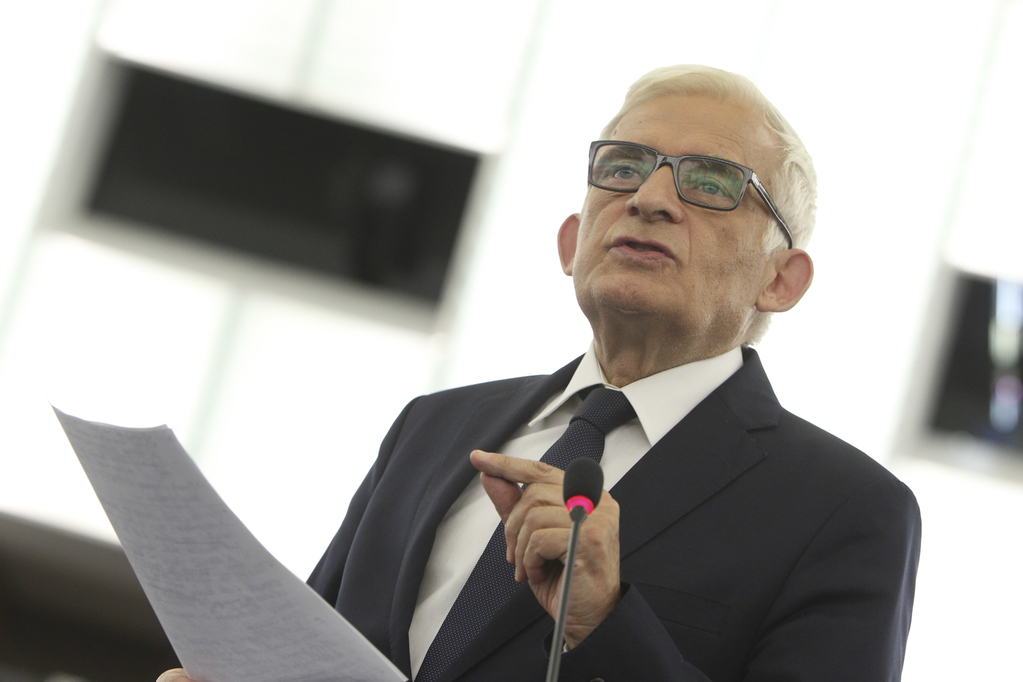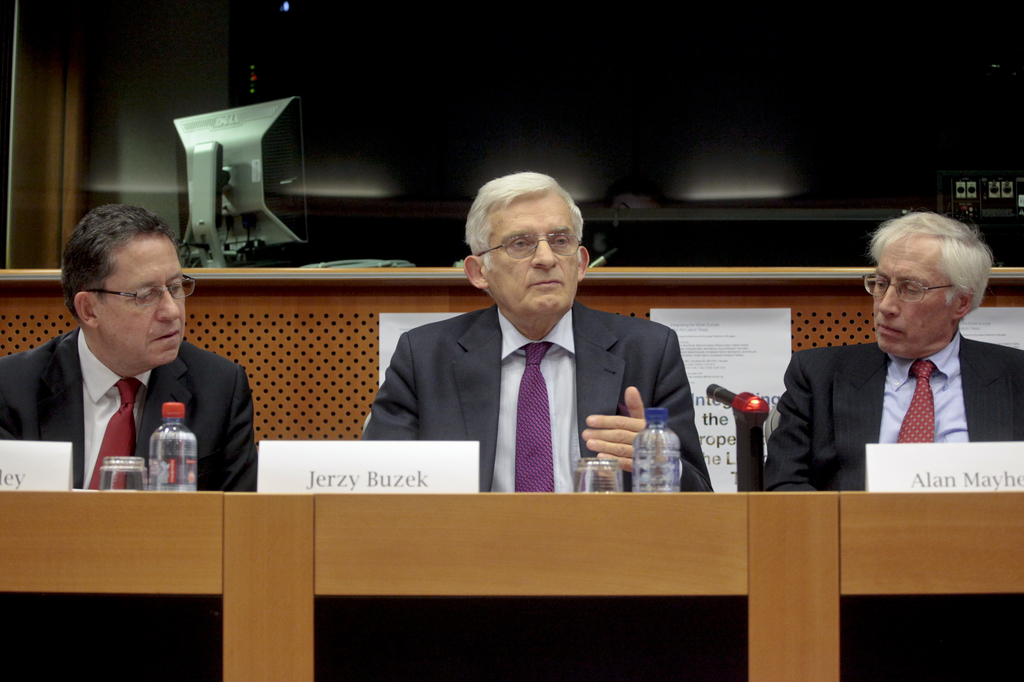Biography
Jerzy Karol Buzek was born on 3 July 1940 in Smilovice, Czechoslovakia. He graduated in 1963 from the Mechanics and Energy Division of the Silesian University of Technology in Gliwice, where he specialised in chemical engineering. He became a scientist in the Chemical Engineering Institute of the Polish Academy of Sciences in Gliwice. In 1969, he was awarded a Ph.D. He spent 1971 on a research placement at the University of Cambridge. Buzek was a respected lecturer at the Silesian Institute of Technology in Gliwice and at the Opole Institute of Technology. In the early 1980s, his focus shifted to environmental protection. He eventually obtained the title of Professor of Technical Sciences. He was the Vice-rector of the Akademia Polonijna (Polonia University) in Częstochowa from 2002 to 2004, and was awarded an honorary doctorate by the universities of Dortmund, Seoul and Isparta (Turkey) as well as the Technical Universities of Silesia, Opole and Łódź.
In the 1980s, Buzek was an activist of the Solidarność (Solidarity) trade union and political anti-communist movement. He was a delegate to the Solidarność’s First National Congress of Delegates and later chaired the fourth, fifth and sixth Congress of Delegates. In 1981, he escaped incarceration and went underground to become the co-publisher of the illegal „S” bulletin. For a number of years, he was active in the underground regional and national authorities of the "S". A serious illness of his daughter made him quit underground activism.
From 1997 to 2001, Buzek was Prime Minister of Poland.
His return to political life in 2004 saw him gain the largest popular vote in Poland as the member for Katowice to the European Parliament standing for the Civic Platform. As in 2004, he received a record number of votes again in 2009, when he was re-elected MEP for the Silesian Voivodeship constituency.
On 14 July 2009, Buzek was elected President of the European Parliament. He was re-elected Member of the European Parliament in 2014 and 2019.
He has been a member of the Delegation for relations with the NATO Parliamentary Assembly and has been active in the Subcommittee on Security and Defence, the Delegation to the Euronest Parliamentary Assembly and the Delegation to the EU-Ukraine Parliamentary Association Committee. He represented the European Parliament as an election observer during the 2004 elections in Ukraine.
Political Posts held
• 1980-1987: Solidarność (Solidarity) trade union activist
• September 1980: Elected Chair of Solidarność’s Works Committee
• 1981: Delegate to the Solidarność’s First National Congress of Delegates, Chair of the 4th, 5th and 6th National Congress of Delegates (1992-1994)
• February 1997: Coordinator of economy experts for the Solidarity Electoral Action (AWS) coalition
• 1997-2001: Prime Minister of Poland
• 1998: Founded the Family Foundation
• 1999: Elected Chairman of the political coalition Solidarity Electoral Action (AWS)
• since 2004: Member of the European Parliament
• since 2004: Member of the European Energy Forum (2004-2014: Vice-President, since 2014: President)
• 2009-2012: President of the European Parliament
• 2014-2019: Chair of the Committee on Industry, Research and Energy
What's in the Archives
The fonds of President Jerzy Buzek’s cabinet contains 765 files, most of them in electronic format. These fonds reflect the activities of the President in the performance of his duties and the documents focus on the Cabinet’s relations with Parliament’s other Directorates-General and the Presidents’ contacts with the other EU institutions and Member States. Groups of documents containing information on speeches, press releases, interviews and participation in various events such as conferences, openings and seminars should be noted.
 Plenary session of September 2013 - Jerzy Buzek at the joint debate 'Internal energy market/Micro-generation' © European Union 2013 – European Parliament
"Europe is [...] a political choice - a choice in favour of hope - hope based on the lessons of the past and the possibilities of the future."
Plenary session of September 2013 - Jerzy Buzek at the joint debate 'Internal energy market/Micro-generation' © European Union 2013 – European Parliament
"Europe is [...] a political choice - a choice in favour of hope - hope based on the lessons of the past and the possibilities of the future."
 Conference 'Integrating the wider Europe after the Lisbon Treaty'. David Harley (L), Jerzy Buzek (C), Alan Mayhew (R) © European Union 2011 – European Parliament
Conference 'Integrating the wider Europe after the Lisbon Treaty'. David Harley (L), Jerzy Buzek (C), Alan Mayhew (R) © European Union 2011 – European Parliament
